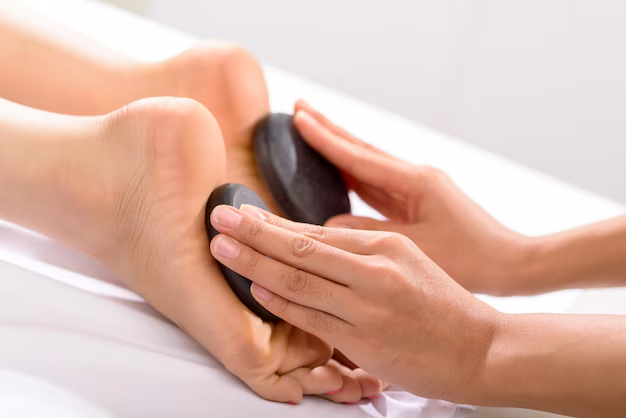Understanding Gout: Can This Painful Condition Be Cured?
Gout is notorious for sneaking up in the middle of the night, delivering sudden, excruciating pain typically to your big toe. But is there more to gout than just this notorious attack? And more importantly, is gout curable? Let's dive into the heart of this common yet complex condition and explore the truth behind its manageability and discover whether a cure is truly within reach.
What is Gout?
A Brief Overview
Gout is a form of arthritis often marked by severe pain, redness, and swelling in joints. It's caused by an overabundance of uric acid in the body. When this acid isn't properly excreted or is produced in excess, it forms sharp crystals in joints, leading to the symptoms gout sufferers dread.
Unpacking Uric Acid
Urinary acid comes from the breakdown of purines—substances found in foods and your body's cells. In moderation, uric acid is typically harmless and is dissolved in the blood and expelled via the kidneys. However, when things go awry, the effects are quite noticeable.
Is Gout Curable?
The Short Answer
Currently, gout is not considered curable in the conventional sense. However, with consistent and effective management, individuals can mitigate symptoms and avoid flare-ups, leading to a lifestyle comparably free from the havoc gout can wreak.
Managing Gout
Understanding that gout isn’t curable changes the perspective to one of management. Managing gout involves lifestyle changes, medications, and consistent monitoring. Let's break this down.
Lifestyle Changes: Your First Line of Defense
Diet: Your Greatest Ally
- Limit Purine-Rich Foods: Foods like red meat, shellfish, and alcohol can raise uric acid levels. Limiting these can help manage symptoms.
- Hydration Matters: Drinking plenty of water is essential for flushing out uric acid.
- Focus on Fruits and Vegetables: These are naturally low in purines and can aid in lowering uric acid levels.
Weight Management: The Game Changer
- Lose Excess Weight: Carrying extra weight can increase uric acid production. A healthy weight can improve your body's efficiency in processing uric acid.
- Regular Exercise: Incorporating consistent physical activity can help maintain a healthy weight and improve overall health.
Medical Management: Prescription and Guidance
Medications as Essential Tools
There are several medications that serve as critical components in the management of gout:
- Urate-Lowering Drugs: These help reduce uric acid levels in the blood.
- Anti-Inflammatory Medications: Used to alleviate the pain and swelling during acute gout attacks.
- Preventive Therapies: Some medications are used to prevent future attacks or complications.
Doctor’s Monitoring
Regular check-ups with a healthcare professional are critical. This helps ensure that your uric acid levels remain in check and that any necessary adjustments can be made promptly.
Triggers and Prevention
Identifying Personal Triggers
Many individuals with gout find that certain activities, foods, or stressors lead to attacks. Keeping a diary of potential triggers can be invaluable in identifying and avoiding potential flare-ups.
Preventive Strategies
- Consistence is Key: Maintain a stable routine of diet and exercise.
- Monitor Your Health: Regular health check-ups and self-monitoring play a crucial role in managing gout effectively.
- Moderation Matters: Limit alcohol consumption, which is a common trigger for many.
Complications of Untreated Gout
Beyond the Pain
Without proper management, gout can lead to severe complications, such as:
- Joint Damage: Persistent inflammation can cause prolonged joint damage.
- Kidney Stones: Excess uric acid may form kidney stones.
- Chronic Arthritis: Uncontrolled gout may lead to chronic arthritis, a more severe and debilitating condition.
Empowering Yourself with Knowledge
Understanding that while gout isn’t curable, individuals can lead full and satisfying lives without the constant dread of the next attack. Armed with the right information, consistent monitoring, and a dedication to a healthier lifestyle, the impact of gout can be minimized substantially. Empower yourself with knowledge and take proactive steps to control this condition rather than letting it control you.
Summing It All Up
Mastering gout isn't about curing it—it's about managing your life in a way that gout becomes a footnote rather than a headline in your health story. While there is no definitive cure yet, opting for a proactive approach using lifestyle modifications, medical interventions, and understanding personal triggers can profoundly impact your quality of life.
Practical Tips & Key Takeaways 📝
- Limit Purine Intake: Cut down on high-purine foods.
- Stay Hydrated: Water helps to flush out excess uric acid.
- Manage Weight: Regular exercise and a balanced diet can lower uric acid production.
- Adopt a Healthy Lifestyle: Prioritize fruits and vegetables.
- Monitor Your Health: Regular doctor visits for uric acid level checks.
- Use Medication Wisely: Follow prescribed treatments, especially during flare-ups.
- Identify Triggers: Keep a diary to recognize and avoid individual triggers.
These lifestyle changes and strategies are the bedrock for managing gout effectively, empowering you to live with minimized discomfort and maximum vitality. 🏃♂️🥦 Keep learning and adapting, because the control is in your hands, even if the cure isn’t.

